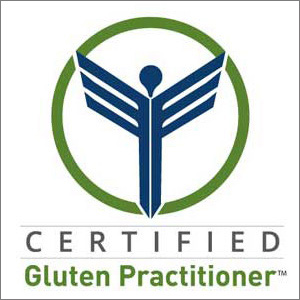 When it comes to managing your special diet – do you have “Street Smarts”?
When it comes to managing your special diet – do you have “Street Smarts”?
You might be wondering what I mean by this.
While not always easy to come by, Street Smarts means knowing how to handle just about any situation that comes along – especially when you find yourself tempted to stray.
It means knowing that when you’re harried and frustrated by circumstances beyond your control – or, well meaning folks who don’t seem to understand or care – you’re able to make an informed choice because you understand the long-term damage that can result from that one exposure, however small.
My newly released video series A Gluten Primer – Everything You Wanted to Know From A-Z explains well, literally everything – in a collection of 26-videos plus a 2-hour tutorial.
In a nutshell, though, here’s what it ultimately comes down to:
Knowing what foods are safe to eat
It all starts here.
Yes, it can take awhile to get up to speed and know exactly where gluten is lurking – plus, if you’re sensitive to dairy and other foods, knowing exactly which foods to avoid.
And even when you know which foods are safe for you, the next step is learning which choices are the healthiest.
After all, just because something is gluten-free doesn’t necessarily mean it is good for you. In fact, one of the biggest mistakes that people make when first approaching a gluten-free diet, is to seek out ‘safe’ substitutes for their favorite, gluten-filled counterparts.
This is wrong on two counts:
1. Gluten-free processed foods are among the worst foodstuffs in the marketplace, due to the highly processed ingredients which include starches & flours that are void of nutrition – not to mention the typical use of additives, preservatives, sugar and things like GMO-corn which can further undermine your health
2. If you’re diet is laden with gluten-free breads, pasta and other starches – your body won’t be getting the nutrients it needs, it order to truly heal. Your best bet is a diet rich in whole foods, consisting of fresh fruits and vegetables, grass-fed meat, wild fish and legumes. (with minimal focus on whole grains).
Knowing what to feed your kids
Kids are notorious for being picky eaters.
When you add Celiac disease, non-celiac gluten-sensitivity, or food sensitivities into the mix, life gets even more interesting.
How do you get other family members on board?
Does the entire household need to go gluten-free, or are there ways to keep everyone happy? (Including your husband who can’t live without his weekly beer and pizza).
Perhaps the most important thing is embracing the idea of cooking and preparing your own food – in the safety of your home. And getting the entire family on board, with shopping, chopping and cooking. Be sure to include chores that even the smallest family member can handle.
Knowing how to handle social situations
Dining out – whether at a restaurant or someone’s home – comes with it’s own set of challenges.
Invariably, you will hear the phrase “Just one little bite isn’t going to hurt you.”
Yes it can!
Even the smallest bite of gluten will trigger your immune system and set you back for days – if not months.
I understand that you don’t want to be rude and you don’t want to offend – and there’s no questions that situations such as these can be tough.
But there are lots of strategies to help you get through them, and this is what I focus on with my clients.
Knowing what to do when you travel
Unless you stay home all the time and never go anywhere, sooner or later you’ll find yourself on a plane – either for business or your dream vacation.
In many ways, the challenges associated with travel aren’t much different from most social situations.
The best thing you can do for yourself is to travel with food – lots of it!
Your choices will depend in part, on your specific food sensitivities, but knowing you have something safe to eat for breakfast and snacks is half the battle right there.
Knowing how to navigate the food landscape
Every day, we are faced with an onslaught of marketing messages tempting us to eat 24/7.
Even though the human body wasn’t designed to be eating all day long, that’s exactly what many of us do.
We live in a time of convenience and abundance, and food is always available to us – pretty much any time of day.
We go to the grocery store and there are free samples, just for the taking.
At the office, meetings and special occasions are celebrated with food.
At night, we turn on the TV, and listen to even more messages about food – luring us either to snack, or purchase certain products that promise to make our lives better, easier and happier.
These “external cues” as we call them, make it harder to listen to our “internal cues” – such as actual hunger.
But how can anyone resist?
What about you?
Do you wonder if you’ll ever figure it out?
How can you learn to navigate your food allergies and gluten sensitivity, with so much noise going on all around you, all the time?
The good news is – I’ve already done the work for you.
My programs are designed to give you all the answers you need, without having to spend hours on the internet doing the research yourself.
Although you can work with me privately, my newly released video series: A Gluten Primer -Everything You Wanted to Know From A – Z gives you all the educational tools you need, at the fraction of the cost – including 26 videos, and a 2-hour Tutorial that’s packed with tons of information, everything from Autoimmune Disease to Leaky Gut, Inflammation and lots more!
Got questions? Simply shoot me an email and we can schedule a time to chat.
 Follow
Follow


Speak Your Mind